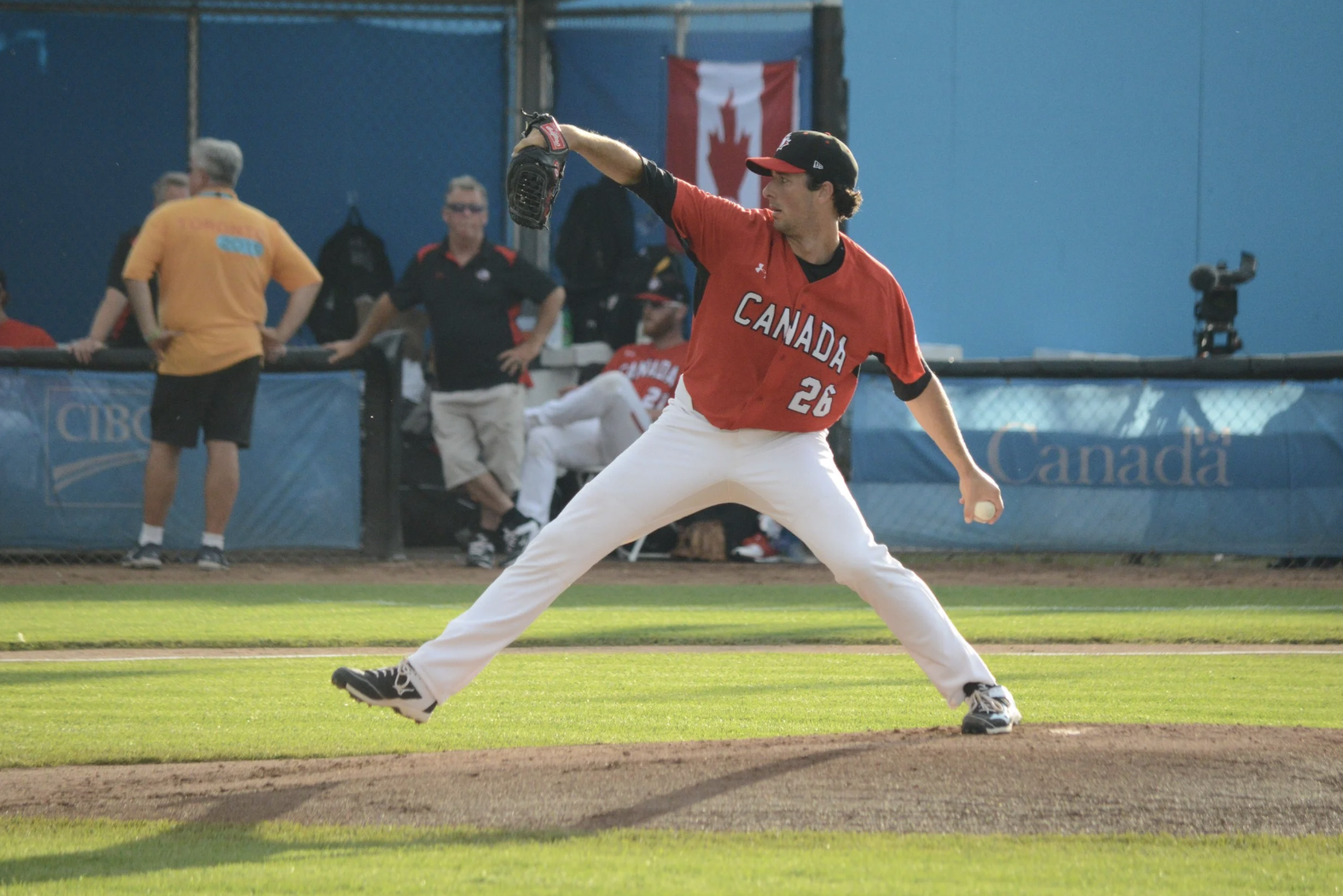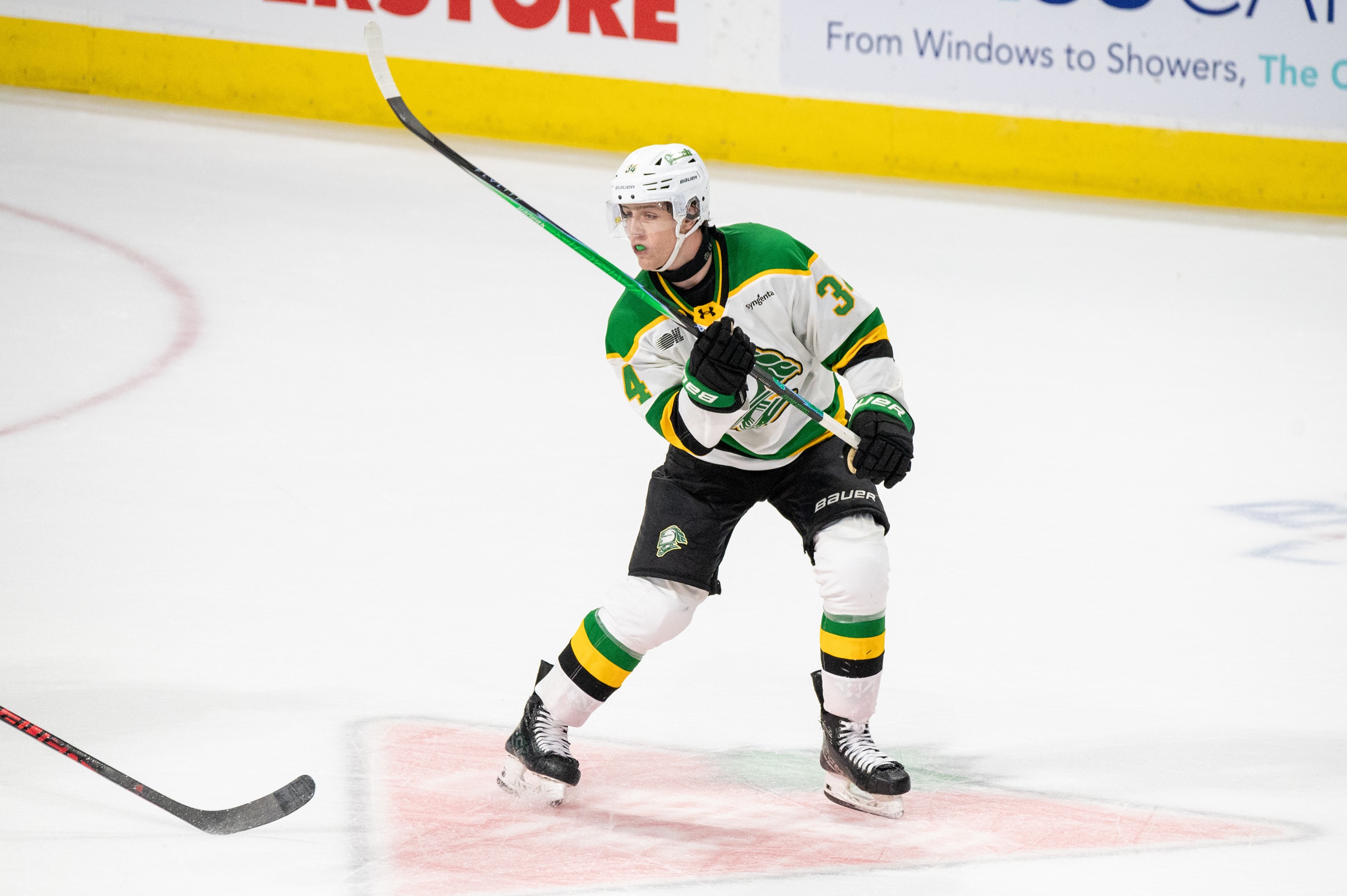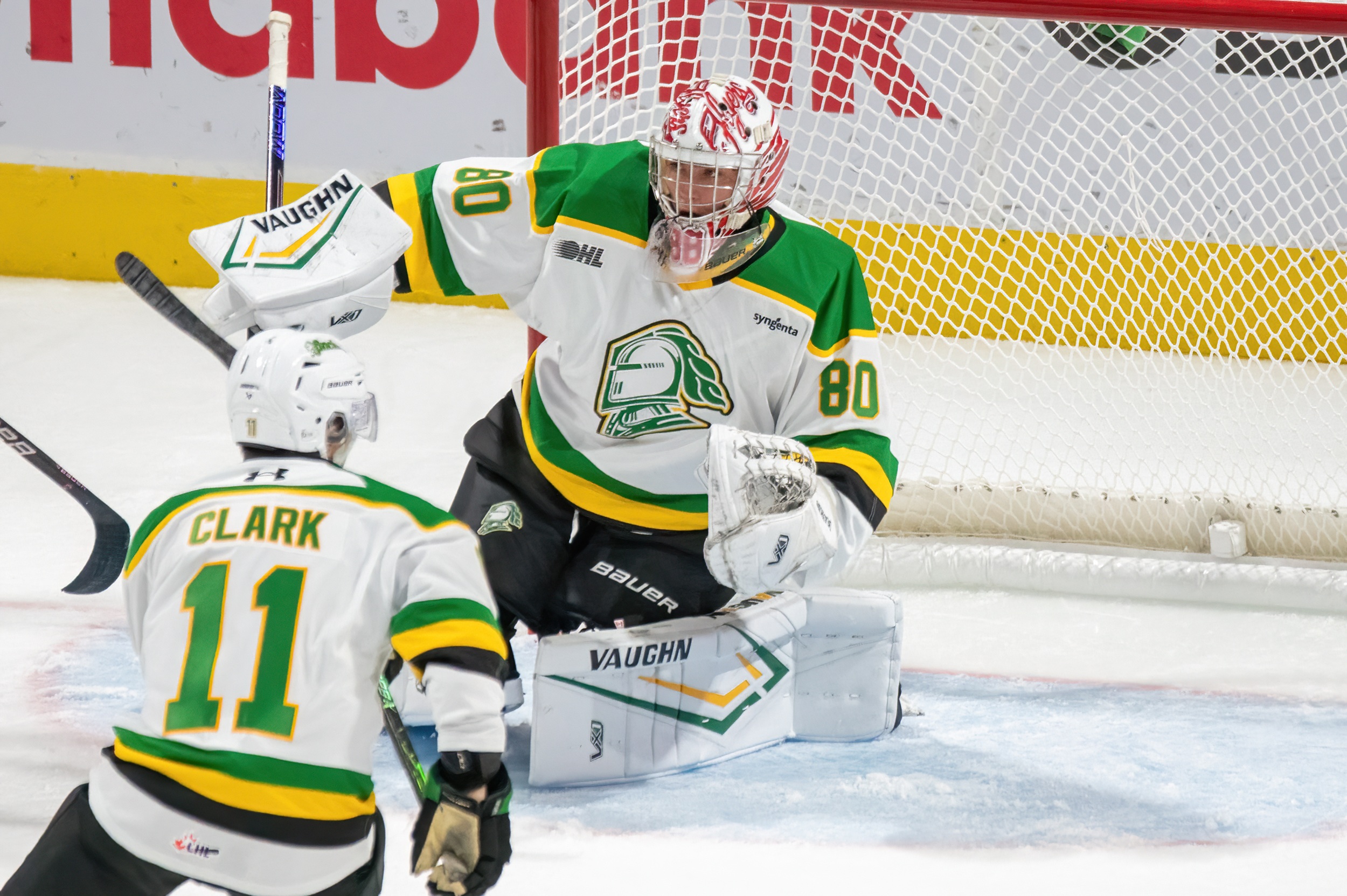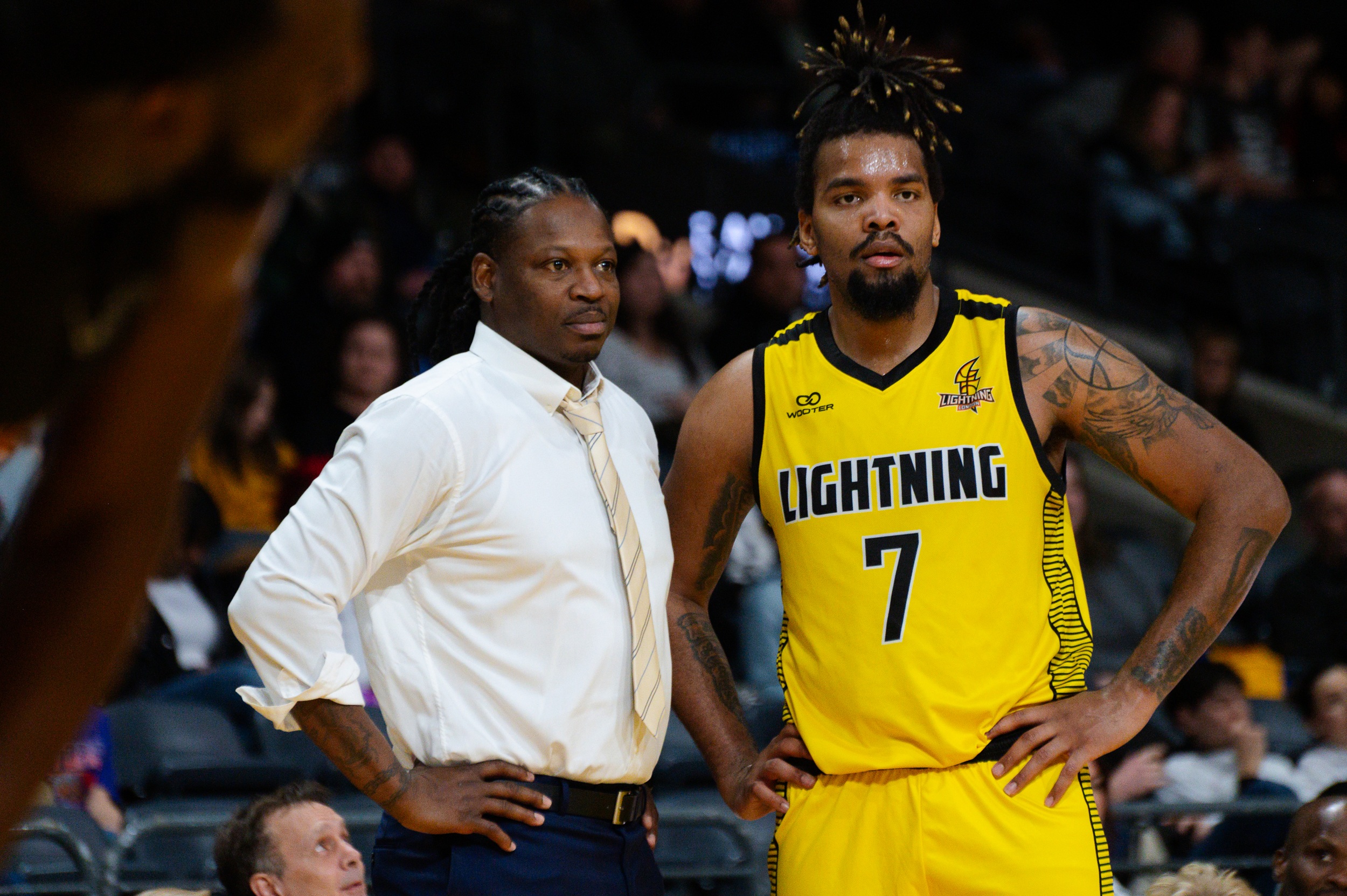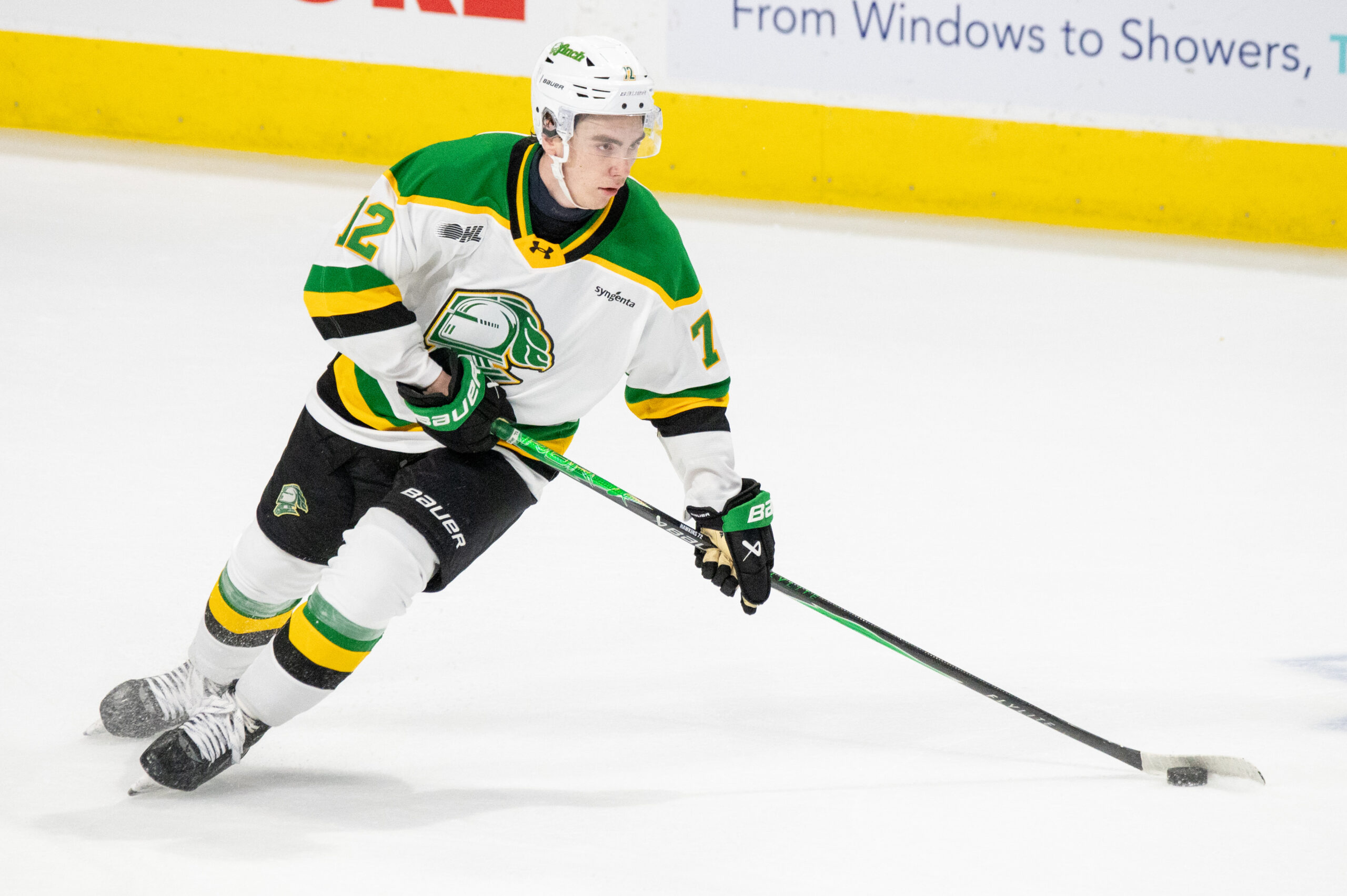BC-born Jeff Francis, who calls London home, reflects on a baseball journey that included 11 big-league seasons, Pan Am Gold, and, earlier this summer, induction into the Canadian Baseball Hall of Fame.
There’s a baseball in St. Marys, Ont., that represents the culmination of a whole lot of promise.
Lightly scuffed, the ball has a hand-written inscription just a quarter turn from the sweet spot, about where a lefty might get a grip on a curveball. It reads:
8/25/2004
1st MLB Strikeout
vs.
Atlanta Braves
That was the day Jeff Francis became a major leaguer.
The Colorado Rockies lefty fanned the first batter he faced in his career, Braves shortstop Rafael Furcal, on a 2-2 pitch. His dad, Mike Francis, captured the moment in ballpoint. It was one of eight strikeouts Francis racked up that day at Turner Field in Atlanta, Georgia (and among 869 in his career).
Francis took the loss, however, after giving up six runs on six hits in an 8-1 Braves victory.
But honestly, it didn’t really matter. He had met the expectations that followed him his entire young career, only to discover that expectations never end. They are just part of the game.
Last month, 616 young players were selected in the MLB Draft, each one feeling the incredible pressure of expectations on what should be the happiest day of their young careers. It’s a pressure Francis remembers all too well.
“Baseball is about failure. It’s about dealing with failure and cultivating your own confidence that’s not based on your performance, not based on your draft status. It just comes from within you,” said the recent Canadian Baseball Hall of Famer. “Regardless of how you performed in your last start, you have to step on the mound again, confident and believing in what you can do. That’s not always easy – dealing with expectation is one of the hardest things to do.”

* * *
Drafts are crapshoots – more busts than booms. That holds especially true in baseball, where the gap in talent and skill level between the university/minor league level and major leagues are far greater than any other sport. While some sports rely on pure athleticism or physical traits like height and weight for an edge, baseball is a game inches, of timing, of long developmental times where raw talent and physical blessings are only part of the equation.
Perhaps that’s why only two-thirds of first-round draft picks ever go on to even play in the major leagues, let alone become all-stars.
Nevertheless, those facts often matter little. Starry-eyed prospect expectations almost always eclipse reality. If you squint, almost any draft pick – especially ones playing for your team – should be a star.
With the No. 1 pick in the 2022 MLB Draft, the Baltimore Orioles tapped shortstop Jackson Holliday as the top position player. The Texas Rangers made righty Kumar Rocker the draft’s top pitcher with the third overall pick.
The Milwaukee Brewers made Sarnia, Ont., native Dylan O’Rae the first Canadian selection this year with the 102nd pick in the third round. O’Rae, who plays for the local Great Lakes 18U Canadians, was one of 18 Canadians players taken in the draft.
With each of those selections come expectations.
“I see a lot of these kids and I know there are a lot of expectations on them,” Francis said. “But they’ll have to learn just like I did about the process of being a professional and dealing with failure, about becoming mentally tough – if they aren’t already. There’s a learning curve on that for all of them.”
That’s sometimes difficult when all you have known is success.
* * *
Despite playing on the Canadian Junior National Team as a senior in high school, Francis went undrafted that year and opted to attend the University of British Columbia. In his sophomore year, he was named Canadian Baseball Network (CBN) Player of the Year and a member of the CBN All-Canadian First Team.
After his junior year, Francis went to Alaska to play for the Anchorage Bucs. After throwing a club-record six shutouts and finishing 7-1 with a 1.20 ERA and 83 strikeouts in 76 innings, he was named Alaska Player of the Year. Invited to pitch in the National Baseball Congress tournament in Wichita, Kansas, he was named tournament MVP and labeled ‘best prospect’ after hurling 14 shutout innings.
“In Alaska, I opened some eyes – including my own – about what I could do against the top college players in the country. I did so well that I started getting more and more attention,” Francis said.
That attention turned into talk about him getting drafted in the top five rounds, which meant scouts coming to his home to meet the parents. One by one they arrived, oftentimes a couple of times a week, and each time Francis made the drive from UBC, in Vancouver, to Delta, BC, where he would sit and have dinner with his family and a scout. Yes, it was as awkward as it sounds.
“That was like building pressure, right? The more I pitched, the more people showed up; the better I did, the more talk there was,” Francis explained.
Then he found himself on the cover of Baseball America magazine – at the time the equivalent of ‘going viral’ within the prospect community. Talk turned to the possibility of Francis going in the first round. The visits increased – along with the pressure.
Here’s how one scout wrote about Francis the spring before his major league debut:
Francis is tall and rather lanky. A good overall athlete, he still has room to fill out and add strength to his frame and oomph to his fastball. Even if that doesn’t happen, his fastball is already more than adequate at 89-92 mph. When Francis was drafted, his breaking pitch was a rather erratic slurve, but he’s refined the breaker into a very nice standard curveball. He’s also made major strides with his changeup and has learned to work both corners of the plate with all three pitches. He is not afraid to throw inside. Francis’ command is already above average and should end up in the excellent category with more experience. His delivery is smooth, helping his command and keeping excess stress off his arm. Francis fields his position well and is effective at holding runners.
Scouts avoided sharing their comps directly with Francis. But there was that meeting with the Pittsburgh Pirates, who held the top pick in the draft that year after a 60-100 season in 2001. Sitting in the family living room in BC, they asked Francis about his goals for baseball and, more precisely, if he considered himself to be a Hall of Famer.
That’s a big ask of a 21-year-old kid. A kid who’s good, maybe even among the best of his cohort. But does that mean he thinks he ranks alongside Walter Johnson and Cy Young?
“Maybe my answer wasn’t good enough for them and that’s why they didn’t draft me first overall,” Francis laughed. “I certainly had never thought of being a Hall of Famer. Maybe I should have. I don’t know. It seems to me that anybody at 21 who’s thinking about being a Hall of Famer is getting ahead of themselves.” *
* * *
Righty pitcher Dave Wainhouse was the first Canadian-born player ever selected in the first round of the MLB Draft when the Montreal Expos took the Toronto native with their No. 19 pick in 1988. He remained the highest drafted Canadian until the 2002 MLB Draft when two standouts were selected higher – Adam Loewen to the Baltimore Orioles at No. 4 and Francis to the Colorado Rockies at No. 9.
In his pitching career with the Orioles, Loewen tossed 164 innings and was 8-8 with a 5.28 ERA in 35 games (29 starts). In 2008, injuries forced him to convert to a position player. Later that year, he signed as a free agent with the Toronto Blue Jays, eventually making his MLB position player debut on September 7, 2011. In 14 games as a Jay, Loewen hit .188 with a home run and 4 RBI.
He attempted a pitching comeback with the Philadelphia Phillies in 2015 and Arizona Diamondbacks in 2016 before retiring. Loewen is perhaps best known today as a great trivia question answer as the highest Canadian-born player ever selected in the MLB Draft.**
Jeff Francis, Canadian Baseball Hall of Famer pic.twitter.com/RFwKUSHPfX
— Colorado Rockies (@Rockies) February 2, 2022
Francis, however, found a higher level of success.
“It certainly felt like a big accomplishment to get drafted, but the noise died down soon after,” he explained. “Once I reported, I realized that there were quite a few expectations on me as a first-round pick about what it’s supposed to look like when I’m out on the mound. I lived up to most of those expectations, but in my first full year (2003), I did struggle a lot at first, probably the first two months of the season. That’s where I had to deal with those expectations and learn about the process of being a professional.”
Occasionally, Francis found himself questioning his own mental toughness – perhaps a fault of not being challenged enough early on. He performed so well in college that failure wasn’t in his vocabulary yet.
“Until you’re really faced with it, until you start maybe even doubting yourself a little bit, you don’t know how to deal with failure,” he said. “You have to experience it to know how to deal with it.
“I guess it wasn’t that I wasn’t mentally tough; it was that I hadn’t been faced with that challenge of how to get over a hump or how to adjust when things aren’t going your way.”
In baseball, that’s what the minor leagues are for – a reason why players don’t go straight to the major leagues from college.
In 2004, Francis was named Minor League Player of the Year by both Baseball America and USA Today. He was the first Rockie ever to win either award and only the fourth player to be honoured in the same season by both publications, joining Braves outfielder Andruw Jones, St. Louis Cardinals pitcher-turned-outfielder Rick Ankiel, and Florida Marlins pitcher Josh Beckett.
When a player like that gets called up to the majors, more than just the most devout seamheads notice.
“I had such a good year that I felt like I’d earned the promotion,” Francis said. “Getting up to the major leagues, I was on a bad team and I wasn’t expected to go out and win a lot of games. So, when I started to struggle, nobody was panicking. That was huge. When you’re allowed to go out and fail and learn from your mistakes, it helps you learn even faster. The fact I was allowed to go out there and fail and give up a lot of runs but not worry about being sent back down was valuable for me.”
That Rockies team was young, with 10 players making their MLB debuts that season, including future All-Star Matt Holliday.
Congratulations to Jeff Francis on being named to the @CDNBaseballHOF Class of 2022! pic.twitter.com/TSVMZA3rH9
— Toronto Blue Jays (@BlueJays) February 2, 2022
“There weren’t too many expectations on us as a team, so that helped me move along a little better,” Francis continued.
Casual fans might see that jump from AAA to the majors as a small step, but the skill level is more than a giant leap, and perhaps even light years ahead of the minors. The ability of players to hit, or not hit, a tempting borderline pitch just outside the zone, was perplexing. That same kind of pitch that was otherworldly in university, that same pitch that dominated in the minors, was simply ball one in the majors.
“In the minors, I could pitch away and not have to come inside very much, which fed right into my strengths. But at the major League level, nah, they won’t fall for that,” Francis said. “I’m so impressed with the big-league pitcher these days. The stuff they have – I’m not sure I ever had that kind of stuff. But the ability of major League hitters to lay off pitches was wild. In the minor leagues, I was getting a lot of strikeouts with those same pitches. That was eye-opening for me.”
Then there is the lifestyle jump. Bigger crowds. Louder noise. Nicer hotels. Fancy planes. A lot more money floating around.
“It’s a big jump in every facet – not only the game, but of life.”
* * *
In 2005, Francis finished sixth in NL rookie of the year voting, going 14-12 with a 5.68 earned-run average and striking out 128 through 183 2/3 innings. His finest year was 2007, when he won 17 games and started three playoff games for the Rockies, including: a Game 1 win in the NLDS; a Game 1 win in the NLCS; and a Game 1 loss in the World Series.*** Francis spent parts of 11 seasons in the major leagues, including 22 innings with his home country team, the Blue Jays, in 2015. He retired in December of that year.
Did he meet the expectations placed on him at a young age? It’s not something Francis thinks about, really. Rather, he chooses to share what he has learned with the upcoming generation of players who might not remember the career of the player in front of them.
“Expectations are difficult to deal with. Sometimes when expectations are placed on you and maybe you don’t feel like you’re meeting those, that can be really difficult to deal with,” Francis explained. “That’s when you have to have your own little process, especially for pitchers. You have to focus on the next pitch – and not the rest of your career. Have your own routine, know that you’re stepping onto the mound prepared every time. When you do that and step into every situation fully prepared, it doesn’t matter how your outing goes – good or bad – there’s nothing more you could have done to be better.”
* * *
FOOTNOTES
* The Pirates did go pitching with their top pick, but instead of Francis, they selected righty Bryan Paul Bullington of Ball State University. In his five-year MLB career, Bullington played for four teams (including a four-game stint with the Blue Jays in 2009) and finished with a career record of 1-9 with a 5.62 ERA.
** Unless you want to argue about the Canadian bona fides of Pittsburgh Pirates pitcher Jameson Taillon, who was the No. 2 selection in 2010. He was born in Florida to Canadian parents.
*** Did you know that Jeff Francis was the first Canadian to start Game 1 of a World Series? It’s true.

